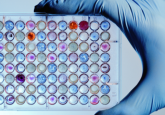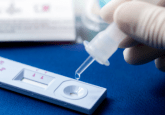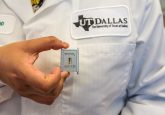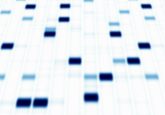Mobile laboratory for rapid diagnosis of Ebola tested in Guinea

An international team of researchers has tested a new procedure for the rapid diagnosis of Ebola in a field study in Guinea. The trial utilized a solar-powered, portable suitcase laboratory, which allows on-site diagnosis in remote areas and is based on the rapid identification of viral RNA in oral swab samples of infected individuals. The project was one of six funded by the British Wellcome Trust program ‘Research for Health in Humanitarian Crisis (R2HC)’ and the results appeared recently in Eurosurveillance.
The new extraction kit was tested on 928 post-mortem swabs between March and May of 2015, in combination with an improved diagnostic reverse transcription recombinase polymerase amplification (RPA) assay for detection of the Ebola virus. The analytical and clinical performance of this procedure was compared with currently available real-time RT-PCR assays, in which it yielded sensitivity and specificity of 100%.
Ahmed Abd El Wahed (University of Göttingen, Germany), one of the researchers in the project and one of the developers of the laboratory suitcase, commented: “In the analysis we were able to determine two things … First, RPA works very well with oral swab samples, which greatly simplifies sampling in the future, because it is faster and less complicated than sampling blood. Second, we have demonstrated that RPA is as sensitive and specific as the gold standard, but technically much more simpler than the real-time PCR methods.”
Potential benefits of the RPA method include the storage and use of its reagent at ambient temperatures of Africa, as well as the rapid detection time-scales of between 30–60 min as opposed to 3–4 h average turnover times observed through RT-PCR methods. The deployment of the mobile laboratory team in Guinea has demonstrated that this procedure is a worthy solution for on-the-go diagnosis of Ebola, directly impacting community engagement and disease control.
With the last known Ebola patient in Guinea having recovered and tested negative for the virus this week, the country is counting down to being officially declared as free of the disease – which it will be, if no new cases are reported in the next 6 weeks. In order to effectively manage and control a future epidemic of the disease, especially with a lack of vaccines or treatments, early identification of cases is essential. The new mobile laboratory, which can be run by local teams, could play a vital role in this process.
Sources: Faye O, Faye O, Soropogui B et al. Development and deployment of a rapid recombinase polymerase amplification Ebola virus detection assay in Guinea in 2015. Eurosurveillance 20(44), doi:10.2807/1560-7917.ES.2015.20.44.30053 (2015); The Ebola mobile suitcase laboratory successfully tested in Guinea; Guinea’s last Ebola patient recovers in Conakry






